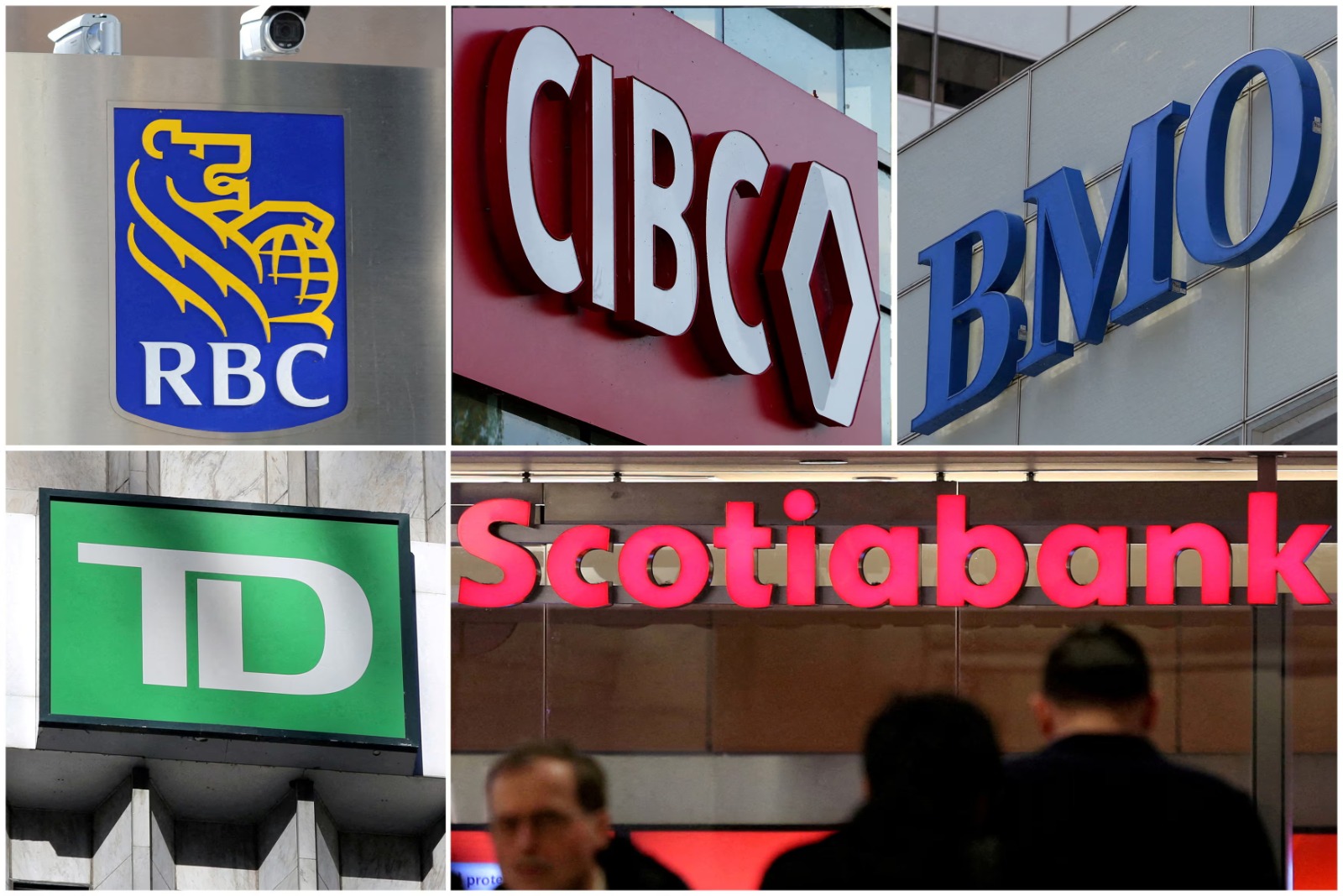Four out of Canada's six largest banks are expected to show a rise in earnings for the fourth quarter as Bay Street turns its focus to the lenders' forecasts for the new year amid interest rate cuts, a slew of mortgage renewals and a new government south of the border. Royal Bank of Canada (RY.TO), opens new tab, TD Bank (TD.TO), opens new tab, Bank of Montreal (BMO.TO), opens new tab, CIBC (CM.TO), opens new tab, Bank of Nova Scotia (BNS.TO), opens new tab, and National Bank (NA.TO), opens new tab control over 90% of Canada's loans and deposits.
They faced several challenges over the past year that prompted lenders to set aside more money to cover for souring loans as clients struggled to make their mortgage and loan payments in a high interest rate environment and elevated costs of living. In recent fiscal quarters, however, falling rates, a hold on expenses, a cautious approach to lending and a boom in investment banking have helped the banks focus on profits.
"Fourth quarter results to show accelerating earnings per share growth, but expect management teams to sprinkle a healthy dose of caution given macro unknowns," Bank of America analyst Ebrahim Poonawala said. Net income is expected to grow between 2% and 32% at four of the biggest lenders, according to LSEG data, with the exception of TD and BMO where earnings are expected to fall 3% to 18% respectively. The S&P 500 and Dow notched record closing highs in a shortened Black Friday session, lifted by technology stocks.
The banks have also faced individual challenges, from TD's anti-money laundering woes, opens new tab to BMO's troubled loan book in the United States. At the same time, analysts are upbeat on Scotiabank amid its turnaround efforts and view National Bank's purchase of Canadian Western Bank as largely positive.
Shares of CIBC have surged the most so far this year with a 47% gain, while those of RBC, National Bank and Scotiabank have gained between 6.8% and 40%. TD is the outlier with its shares losing nearly 3% of their value in the same time period as it works to improve its anti-money laundering protocols after paying a hefty $3 billion penalty to the U.S. government.
Scotiabank analyst Meny Grauman noted that the current rally is less about what the banks will report in the fourth quarter, and more about their outlooks for next year, beyond loan growth, capital markets revenues and loan loss provisions.
While the Bank of Canada's rate cuts have reduced concerns about mortgage payment shocks as a large portion of mortgage owners will have to renew next year, analysts noted the possibility of a rise in competition. Canadian consumers who signed a mortgage when rates were lower are at the risk of seeing higher rates at renewal, a move that could impact lenders' loan growth and increase mortgage delinquency. Most banks acted proactively to reduce payment shock for customers by offering several options, including making a lump sum payment.
RBC Securities analyst Darko Mihelic estimates about C$315 billion ($224.86 billion) of mortgages renewing at the chartered banks in 2025, many with variable-rate mortgages that are currently negatively amortizing. Fiscal 2026 renewals have the largest proportion of variable-rate mortgages, he added.
"Although payment shock is declining, a significant proportion of mortgagors will still have higher mortgage payments — creating a strong incentive to shop around for the lowest available mortgage rate," Mihelic said in a note.












